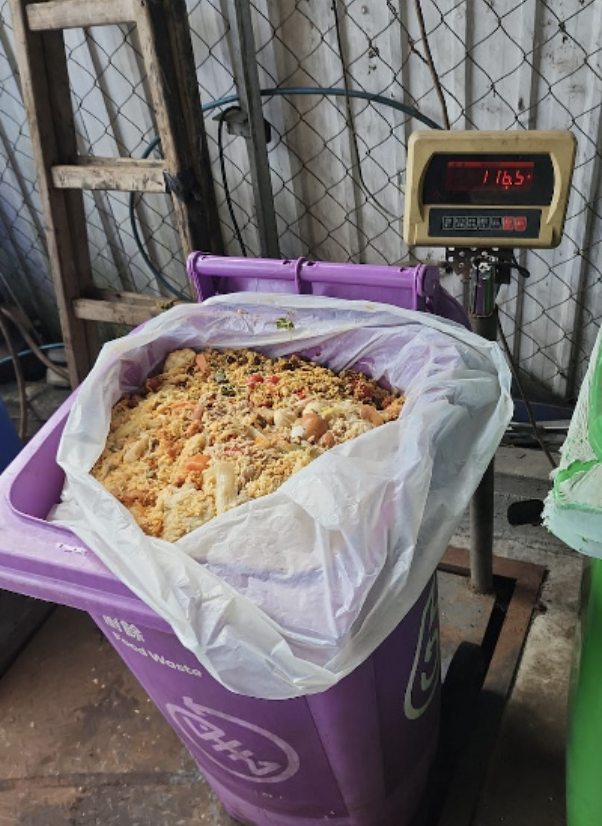
Zita Tam
CDNIS has long prioritised sustainability as a guiding principle in its strategic planning and decision-making. Re- cognising the urgent need to address environmental challenges, CDNIS has committed to weaving sustainability into every facet of its operations over the last few years. Recently, CDNIS has taken sustainability efforts to new heights, unveiling a comprehensive new waste management program that sets ambitious targets for food waste reduction.
This initiative, spearheaded by the sustainability team and in collaboration with Waste Wise (a service provider revolutionising Hong Kong’s waste management efforts), contributes to a coherent framework for addressing current and future food waste problems. With their help, CDNIS will be able to handle food waste off-site at go- vernment-run facilities in Hong Kong, negating the need to spend money on upkeep, maintenance, and health and safety inspections.
Waste Wise compiles all relevant data into key metrics such as bin weight and the weight of food waste. One of the most unexpected findings from this food waste study has been the proportional discrepancies in the data, highlighting the quantity of unprocessable food waste, such as bones. Previously, CDNIS composted food using an on-site composter (formerly known as the “Trash Lab”). Unfortunately, CDNIS faced challenges of being una- ble to process food in large amounts and lacked reliable means for measuring food waste data. In addition to an increasing number of staff and students, CDNIS no longer had the capacity to run the food composter to dispose of our food waste.
However, it’s important to note that the current obtained data with Waste Wise has been relatively brief since a more thorough sorting and evaluation process will require ongoing data collection. With this new collaboration allowing for imperative data to be collected, CDNIS can evaluate its performance and develop targeted initiatives to tackle our specific food waste challenges.
Waste Wise hopes that the CDNIS community will be able to contribute significantly to this new initiative by uti- lising (future) data generated from the program in school projects, including Internal Assessments or Extended Essays for the IBDP, helping to highlight the educational developments and our sustainable practices. Therefore, this promising initiative will significantly reduce our environmental footprint and help foster a culture of envi- ronmental responsibility that benefits both our school and beyond.